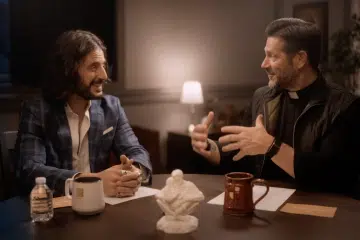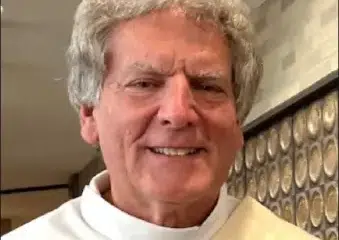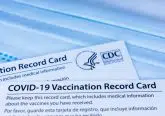Whom Shall I Send, and Who Will Go For Us? Catholic Social Services Provides Health Transportation to Seniors
by Mark Danis
Mahatma Gandhi said, “A nation’s greatness is measured by how it treats its weakest members.” The onslaught of the coronavirus has exposed the frighteningly fragile support structure for a vulnerable segment of our society: the elderly.
The Center for Disease Control (CDC) reports the highest percentage of deaths from COVID-19 are those aged 85 years and older. But that is not the only measure of our elderly’s vulnerability. Indeed, over time, as the current crisis diminishes, it will likely not even be the most significant.
Health Care Access for Seniors
The older members of our society have the same basic needs as everyone: food, shelter, clothing and healthcare. Healthcare, and access to it, can be significant issues for our seniors, especially during a crisis. Though we do still have a sufficient number of hospitals and clinics to address the current need (as of press time), transportation to those healthcare facilities in some areas of Ohio is insufficient to support the overall well-being of our elderly.
In particular, rural regions of Ohio do not have the mature transportation infrastructure of the state’s metropolitan, or even suburban, areas.
According to Michelle Caserta-Bixler, mobility manager for Catholic Social Services of the Miami Valley (CSSMV), “Rural areas face significant challenges in providing the transportation our
elderly need to receive medical and other health-related services. Catholic Social Services is desperately working to fill the gaps in the system so these vulnerable individuals don’t fall through the cracks. What our seniors need is affordable and reliable transportation in the very areas where this is most challenging.”
If transportation services do exist in these areas, they can be prohibitively expensive for those on fixed incomes. Many of the elderly rely on family members or neighbors to provide transportation when possible. But this approach can create undue burdens, and it may not serve as a reliable response in the event of a medical emergency. In addition, not everyone has an adequate support network to fall back on.
Caserta-Bixler related the story of a call she received one day. The man on the phone was desperate to secure assistance for his nearly blind 90-year old mother who needed transportation to an appointment with her heart surgeon. According to Caserta-Bixler, “This is one story among a hundred.”
Responding to the Need
In response to the overall need, CSSMV recently partnered with the Area Agency on Aging and Ross Training Center Services to expand transportation options to six counties in Ohio. With funding from the Ohio Department of Transportation, they will run a six-month pilot program called RideConnect. The program will serve Auglaize, Logan, Mercer, Shelby, Darke and Champaign counties and be free to users.
What they need now are volunteer drivers – individuals who are willing to respond to the Lord’s call: “Whom shall I send?” Good Samaritans who respond to this call will be trained and vetted
through background checks. Their training will include an eight-hour drive training course, CPR and First Aid, child protection training and defensive driving training. They will need a valid Ohio driver’s license with no more than three points accrued. They will also need to be able to read maps and follow directions.
Drivers accepted into the program will be encouraged to volunteer for at least two, but no more than eight, round-trip assignments per month. The positions are for volunteers, but there will be compensation for gas allowances, insurance costs and vehicle depreciation.
Interested volunteers should contact Michelle Caserta-Bixler at Catholic Social Services of the Miami Valley, 937-575-7115 or [email protected].
Please call. Some of our most vulnerable treasures are waiting to hear the response, “Here am I. Send me.” (Isaiah 6:8)













